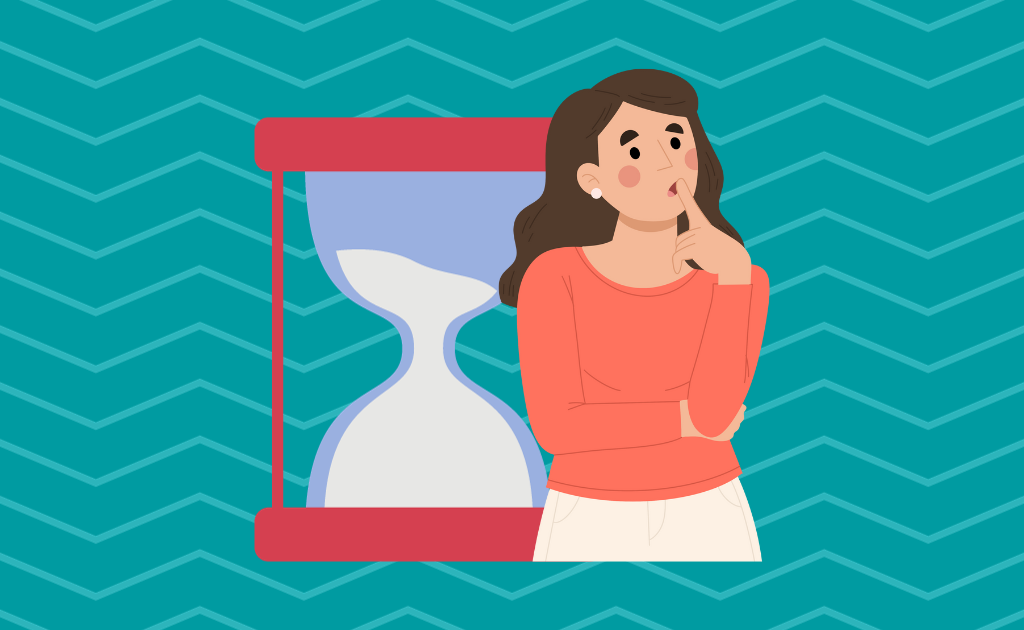For most women between the ages of 45 and 55 years old menopause is a natural and expected biological process that marks the end of menstrual periods. When a woman has had no more periods for 12 months in a row, they have reached menopause. In New Zealand the average age for menopause is 52 years old. However, for some women this process can begin earlier in their life. Premature and early menopause can have a range of associated symptoms, and potentially increases the risk for certain conditions such as osteoporosis and cardiovascular disease.

For some women the onset of menopause can be unexpected and occur earlier in life. Premature or early menopause if different from natural menopause by how old a woman is when menstruation ends.
Premature menopause is when a woman reaches menopause before the age of 40 years.
Early menopause is when a woman reaches menopause before the age of 45 years.
To learn more about menopause read our other article covering the topic.
While someone is said to be in menopause when they haven’t had a period for more than 12 months they may begin to experience symptoms well before this during perimenopause. Early menopause may begin as soon as you start having irregular periods, or you notice that your periods are longer or shorter than normal. Other common symptoms may include:
Speak to a doctor if you experience any of the following symptoms:
Finding a cause for premature or early menopause can be difficult, or in some cases not possible. However there are some recognised possible causes:
Genetics: If other women in your family have experienced premature or early menopause this likely will be an indicator that you are more likely to experience the same. Knowing when other members of your family started menopause can provide insights on when you will too.
Lifestyle: Women who smoke may reach menopause earlier than nonsmokers, along with experiencing more severe symptoms associated with the process. Estrogen is stored in fat tissue, therefore women who are very thin or underweight are at greater risk of early menopause.
Chemotherapy or radiation therapy: Some cancer treatments can cause the ovaries to stop working temporarily or permanently. The younger a woman is at the time of treatment, the lower the risk of menopause.
Surgeries: If a woman has certain health conditions like cancer, or severe endometriosis removal of the ovaries may be necessary. This will result in surgical menopause.
Autoimmune Diseases: It is possible for rheumatoid arthritis, thyroid disease, coeliac disease, or Chron’s disease to affect the ovaries causing earlier onset of menopause.
Chromosome Abnormalities: Women born with missing chromosomes or chromosome issues may go through menopause earlier. Women with Turner’s syndrome are born with an incomplete chromosome, causing their ovaries and menstrual cycles to be abnormal.
During the onset of menopause many people will be able to self-diagnose based on their symptoms. For women under the age of 45 or for anyone wanting peace of mind they may considering using an at-home-test or seeing a doctor.
At-home follicle-stimulating hormone tests can be used at home by women to help determine if they have started menopause or are in perimenopause. While a single test cannot diagnose on it’s own, at-home-tests are a convenient and useful way to track FSH levels and know when to consult with a healthcare professional.
If you are experiencing ongoing symptoms that are causing distress or concern, see your doctor for advice. Your doctor can organise hormone tests to help determine whether your symptoms are caused by perimenopause or another condition.
There are some additional health risks to consider alongside the typical symptoms and health problems associated with menopause. Women with premature or early menopause are at an increased risk of osteoporosis and cardiovascular disease. Your doctor can talk with you about how symptoms are affecting your everyday life and refer you to different specialists for consultation and advice.
Premature and early menopause can also be very upsetting. When menopause is early and unexpected infertility can be a significant concern. Sadness or depression over the early loss of fertility is an understandable consequence of such a significant event and should be discussed with a healthcare professional.
